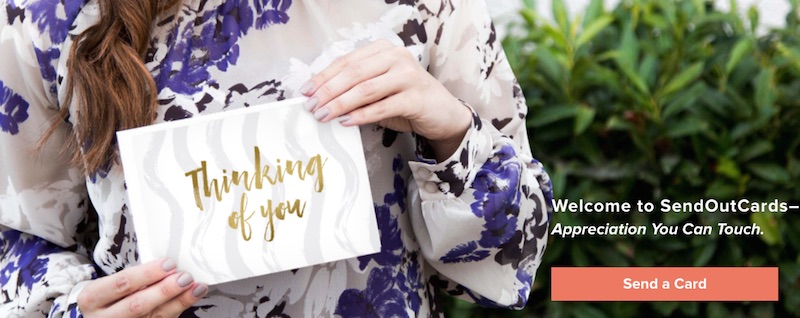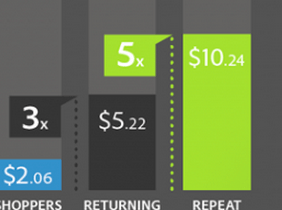
Recognizing valued customers can enhance their loyalty. But it can also be time-consuming for merchants. Many services, such as SendOutCards, can automate and streamline the process.
Consumers who interact with ecommerce companies have many milestones. They spend their first $100. They purchase their 10th product. They spend the 1 millionth dollar with a store.
Customers can also refer others. The first referral and the 10th and the 50th are all milestones. A customer who has earned $500 in referral fees has reached a milestone.
How do you recognize these milestones? What can you do to show appreciation?
Recognition
Many stores recognize milestones by offering coupons. A customer purchases $100 of product and the merchant send a $10 coupon.
That’s a good start. But it’s also common. Many stores do it.
What about a physical card? My customer base is small enough that I can send a handwritten card to each person that makes a purchase. My kids color on it. While that is not doable for large businesses, with automation offline customer recognition can scale to any size.
Automating Recognition
For most companies, it’s feasible to reach out to every customer — one to one — that spends $10,000. But it’s likely not feasible for every customer that spends $50 or $100. While $50 or $100 may not be huge to the business, it could be to those customers.
One way to automate customer recognition in WooCommerce is with Follow Up Emails, a WooCommerce extension from WPspring. It has much more power than I’m about to explain, so read the documentation if interested.
To start, create a new email and then scroll down below the email content entry box, to Triggers.
Here you can choose to send emails after the cumulative purchases exceed, say, $100, or $1000 — or 10 products or 50 products. You can set up coupon codes here, too.
Then write your email and make sure you set it to “Active” when you save it. You’re now sending automatic emails to customers when they make purchases.
This would also be a good way to automate a request to speak with your best customers. You could, for example, email every customer that purchased 20 products and request an interview, to publish on your company’s blog.
Offline
Far too many online stores neglect the power of offline interaction. Here’s a case in point. I once had a customer ask for a refund on a product. But I had already mailed him a handwritten card. When he received it, he called me to apologize. He said other issues in his life created the anger.
Then he purchased more products — twice as many as before.
You may be unable to send handwritten cards. But you can use services such as SendOutCards to automate part of the process.
To get started, import a CSV file of your customers on SendOutCards. You will receive a report of your customers that match your recognition criteria and then upload it.
Next, choose a card and a message, and you’re done. SendOutCards will automatically, well, send out cards. Once you’ve documented the process, you can delegate it to another person, to do monthly.
Your long-term clients can be your best supporters. They trust you. Giving them a nudge by recognizing their milestones can turn them from happy customers into raving fans.
And raving fans tell other people. They sell your products and services without prompting.





